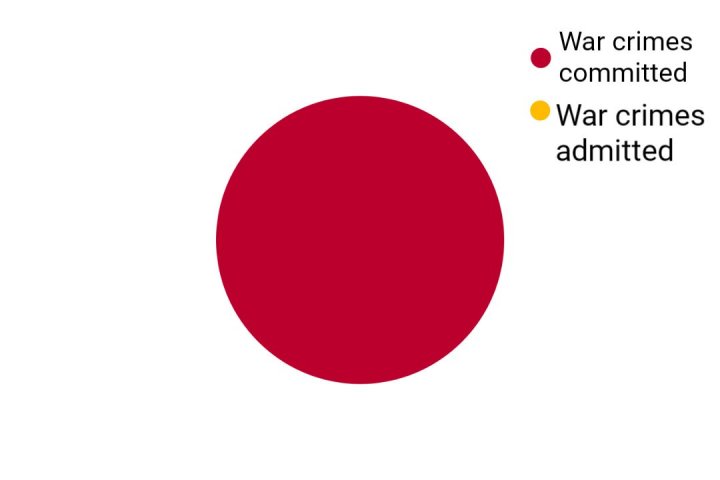This page is a permanent link to the reply below and its nested replies. See all post replies »
novembermoon · 51-55
Great one! It is a shame. For all their strengths in other areas, this non-apology strains their relationship with other Asian countries till this day. I have seen young Japanese go to the museum in my country to learn what their country did in WWII. Silly as it may sound, sometimes I even think if those natural disasters that often strike Japan are a karmic consequence of their cruelty in the war.
Cierzo · M
@novembermoon I don't think it is a wise attitude on their side, bearing in mind that one of the countries pissed by their attitude is China. They really seem to trust the American friend will back them.
Mugin16 · 46-50, M
@novembermoon @Cierzo The Japanese threw away a huge chance in the 1930s and 1940s. They could have fought the European colonising powers on behalf of their oppressed Asian neighbours. But they wanted an empire of their own.
Mugin16 · 46-50, M
@Cierzo @novembermoon You could argue that Japan was in a very bad place in the 1930s. Their population was growing rapidly and they did not have enough arable land to feed it. The U.S. and Australia had forbidden Japanese immigration and with all their main trading partners adopting protectionist tariffs and measures, the Japanese could also not sell their manufactured goods and textiles to get the funds necessary to buy foodstuffs. That left them only the option to conquer land and ressources on the Asian mainland and later the Malayan peninsula and Indonesian islands.
I think this argument is too deterministic but it contains a certain amount of truth.
I think this argument is too deterministic but it contains a certain amount of truth.
Mugin16 · 46-50, M
@Cierzo Actually, the one child policy was adopted after Mao's death. Mao wanted a large population and engaged in several wars (Korea and the 1962 war against India). He even said that China could survive a nuclear war against the imperialistic powers. His successors have followed a much more restrained foreign policy - apart from the 1979 war against Vietnam.





